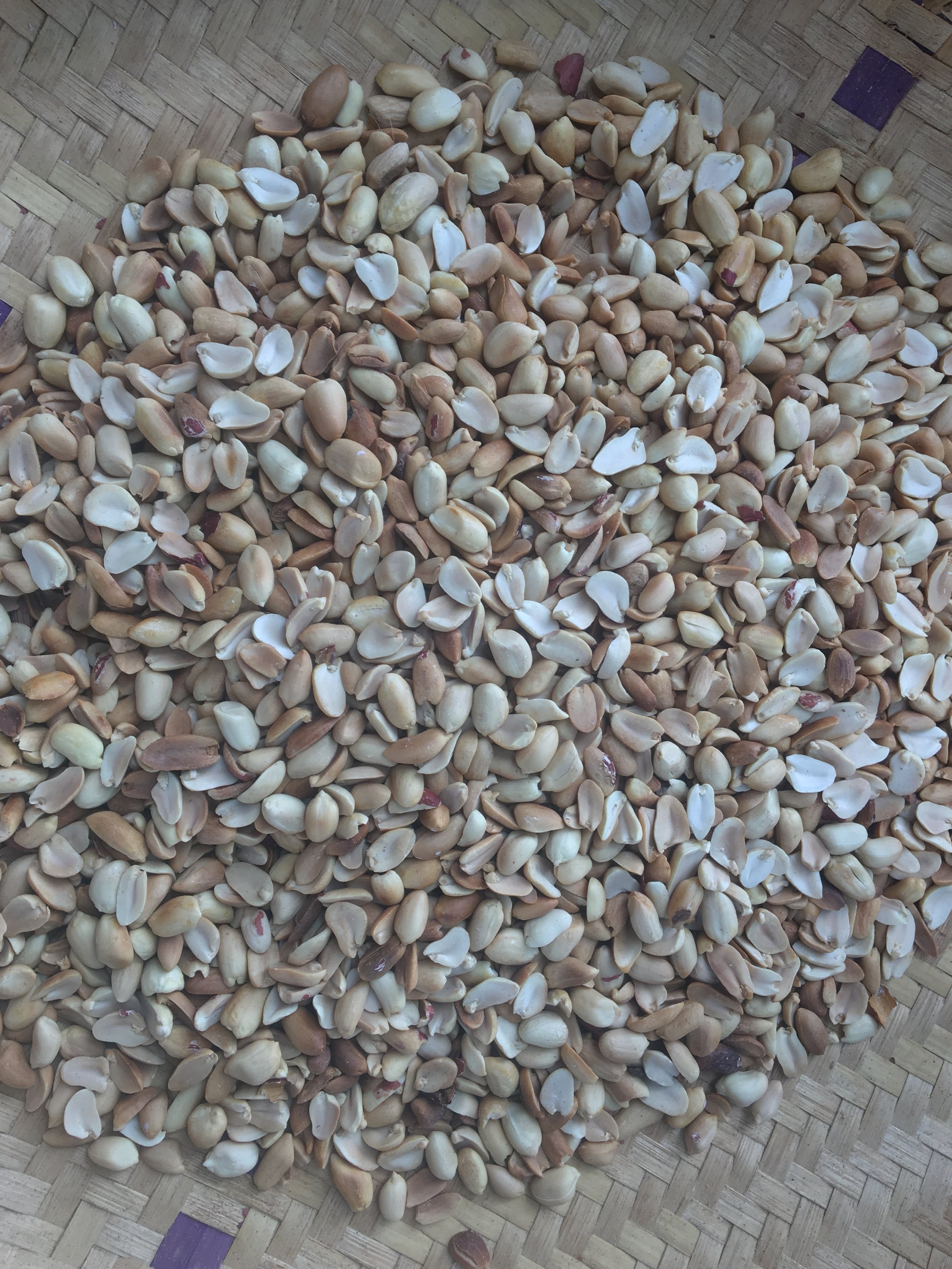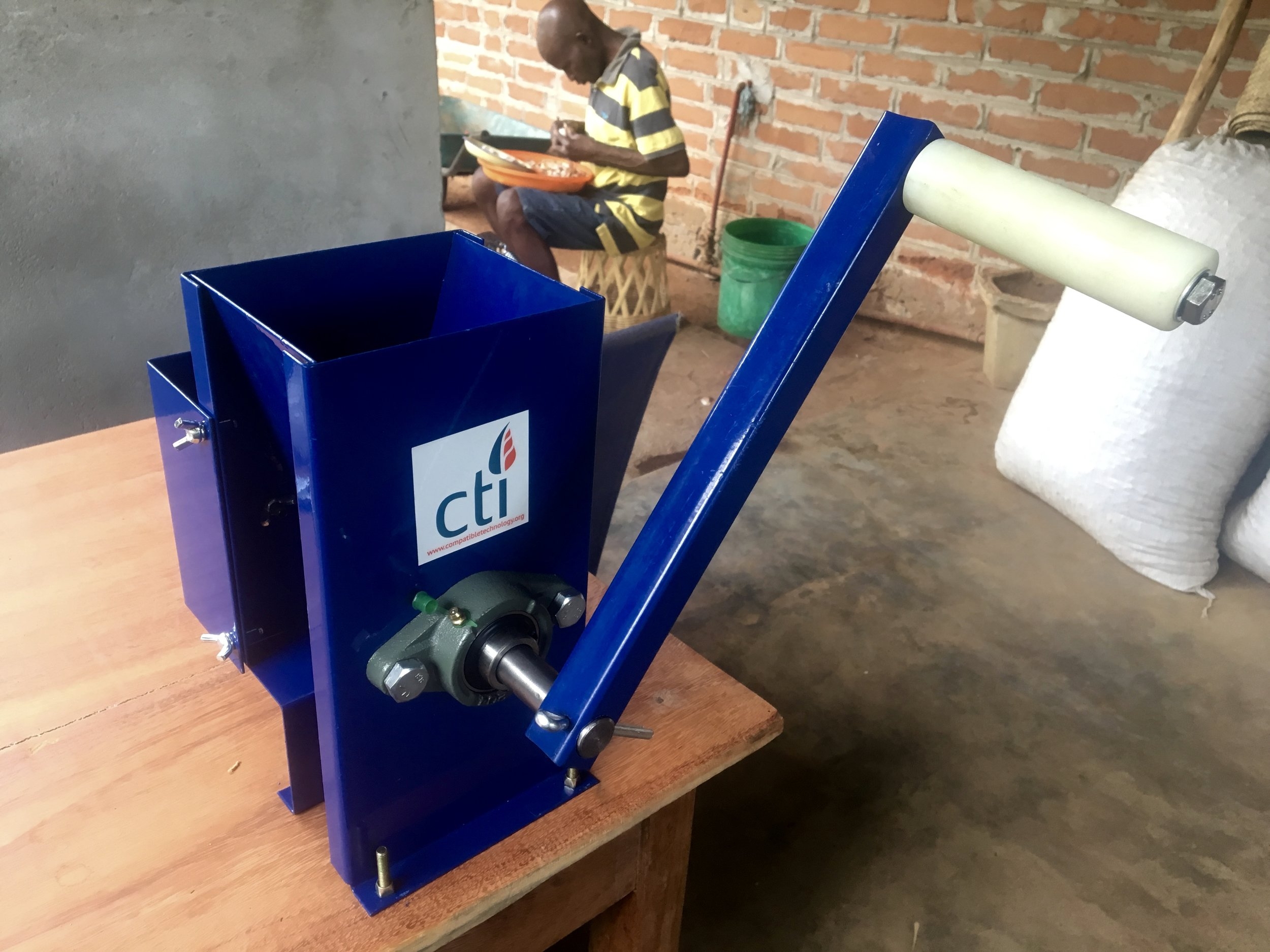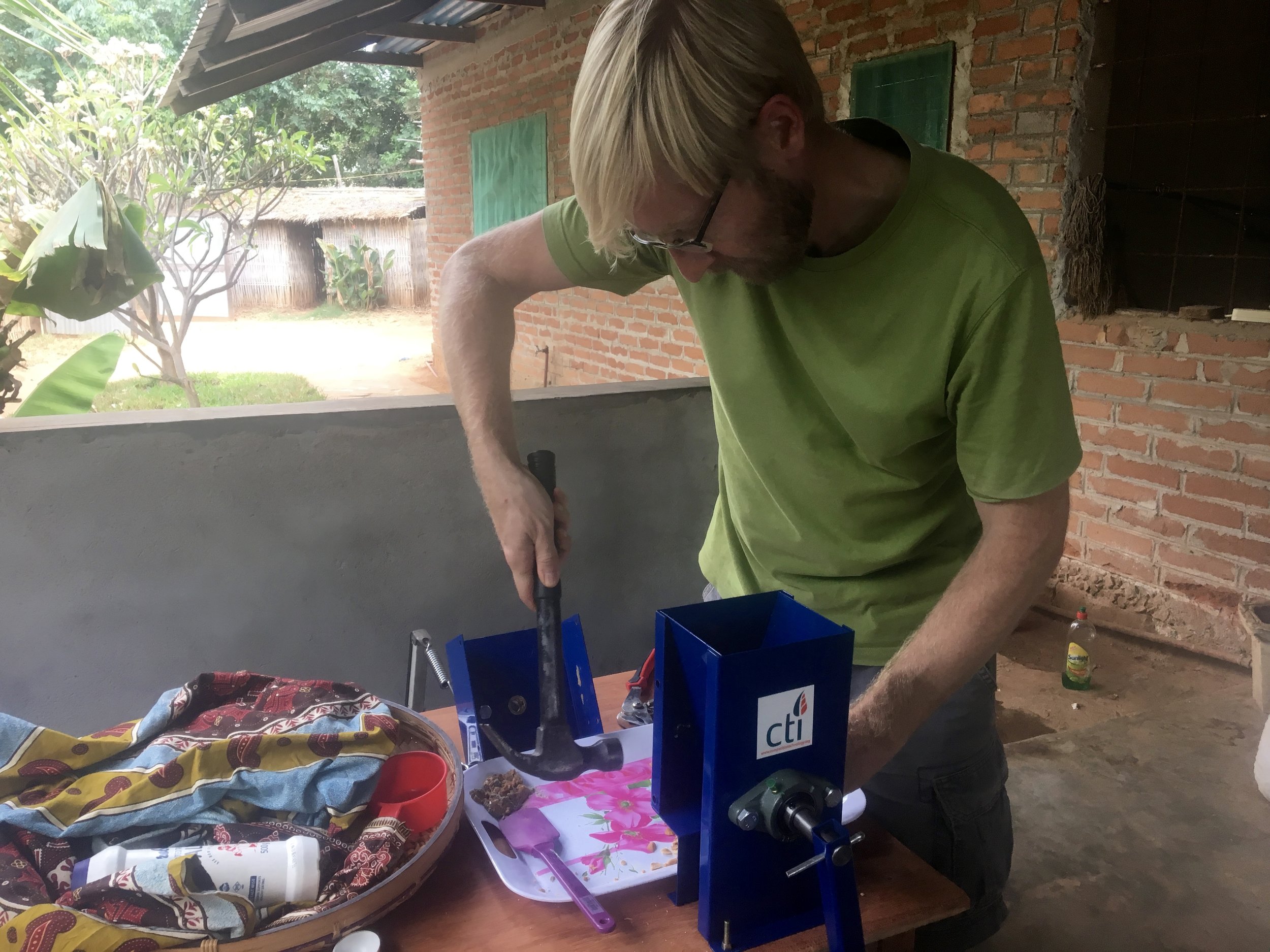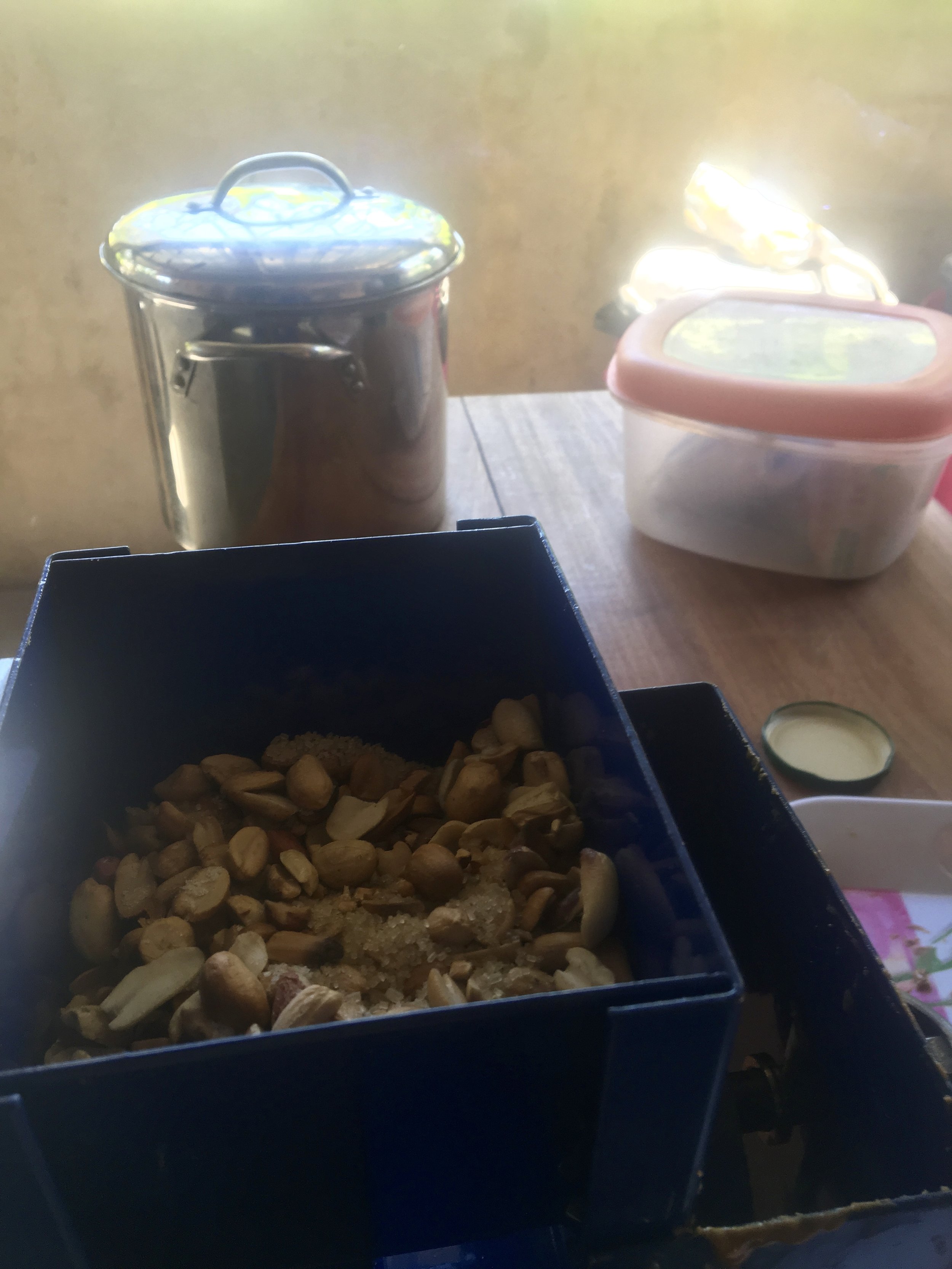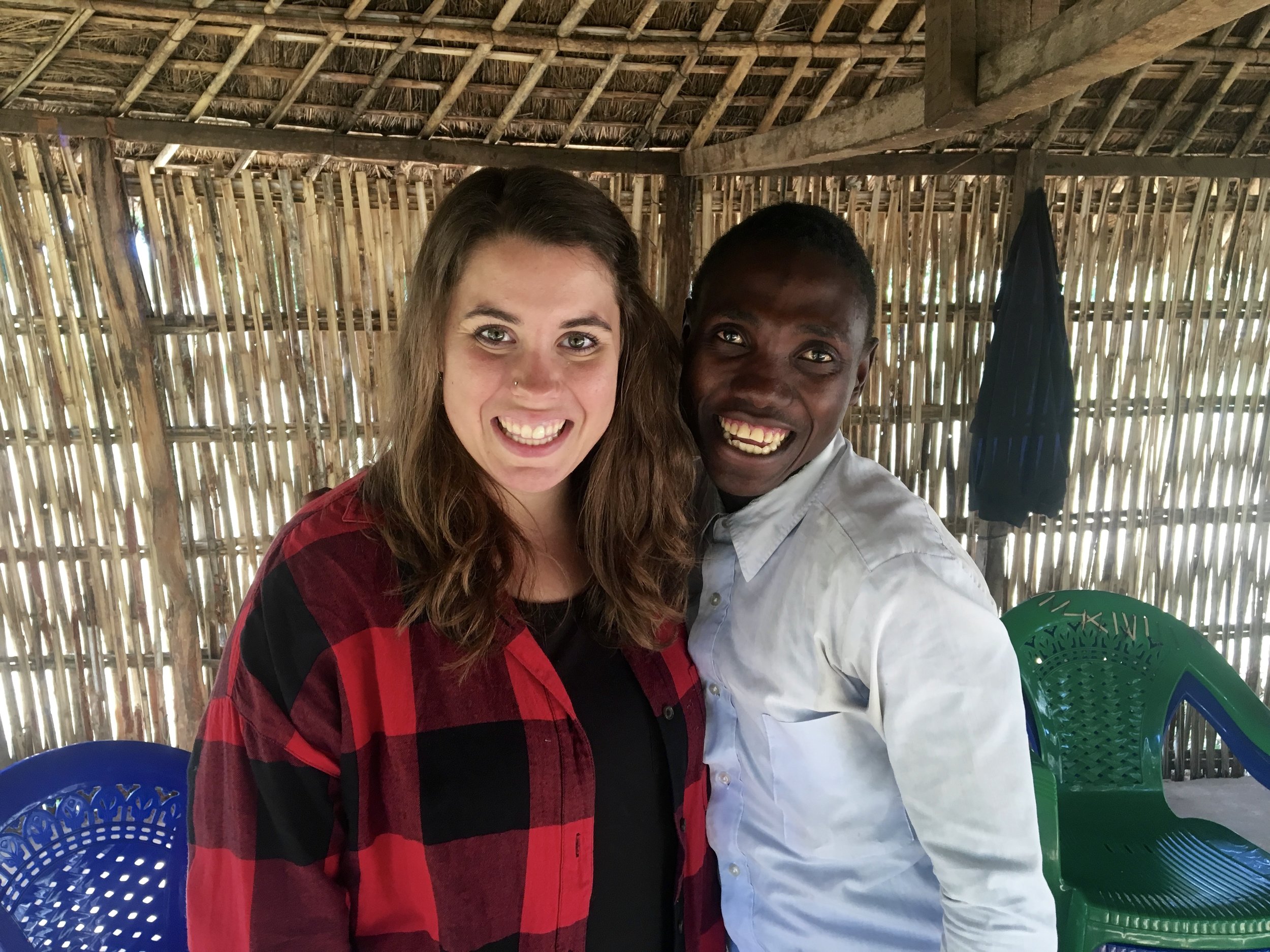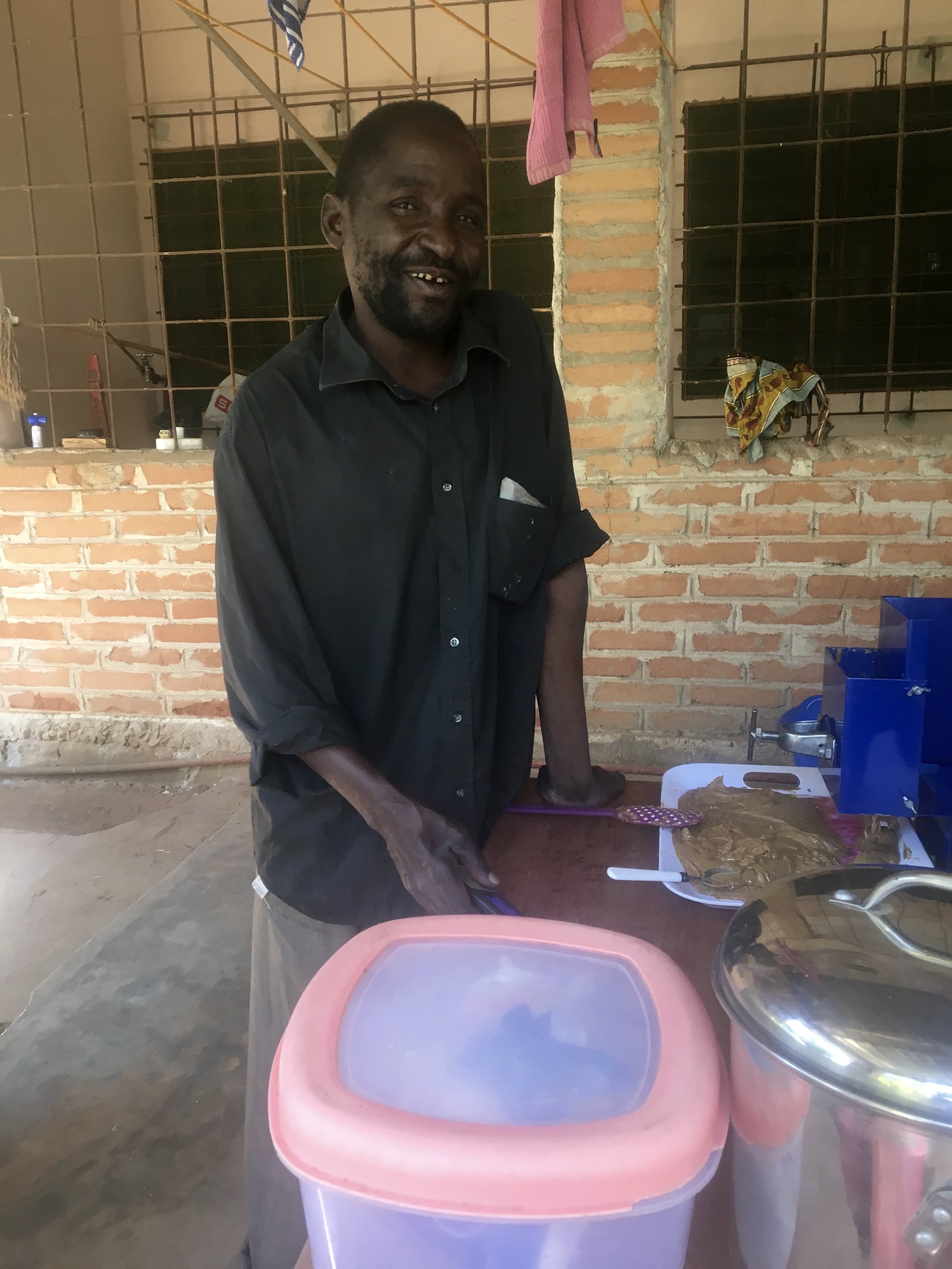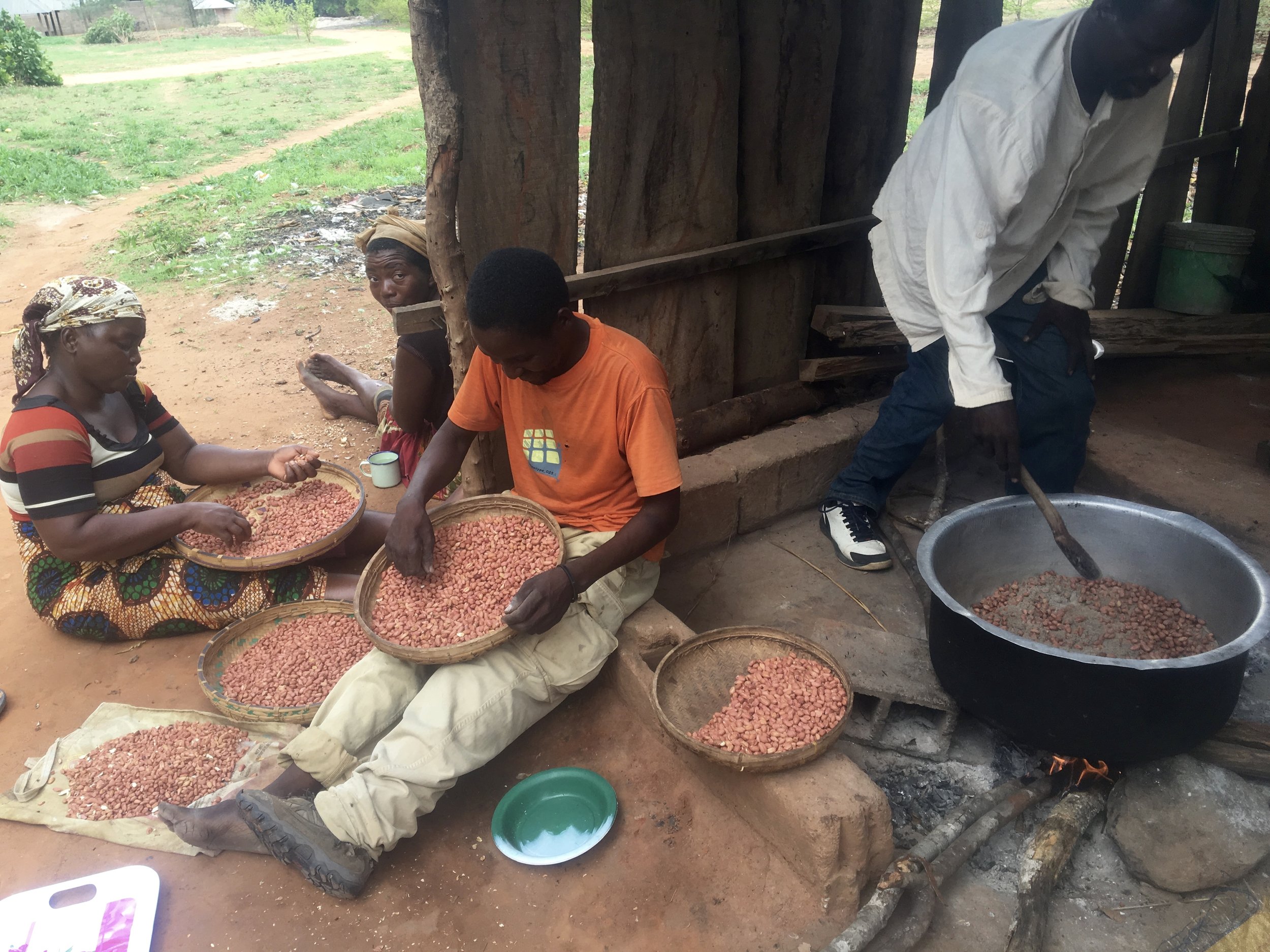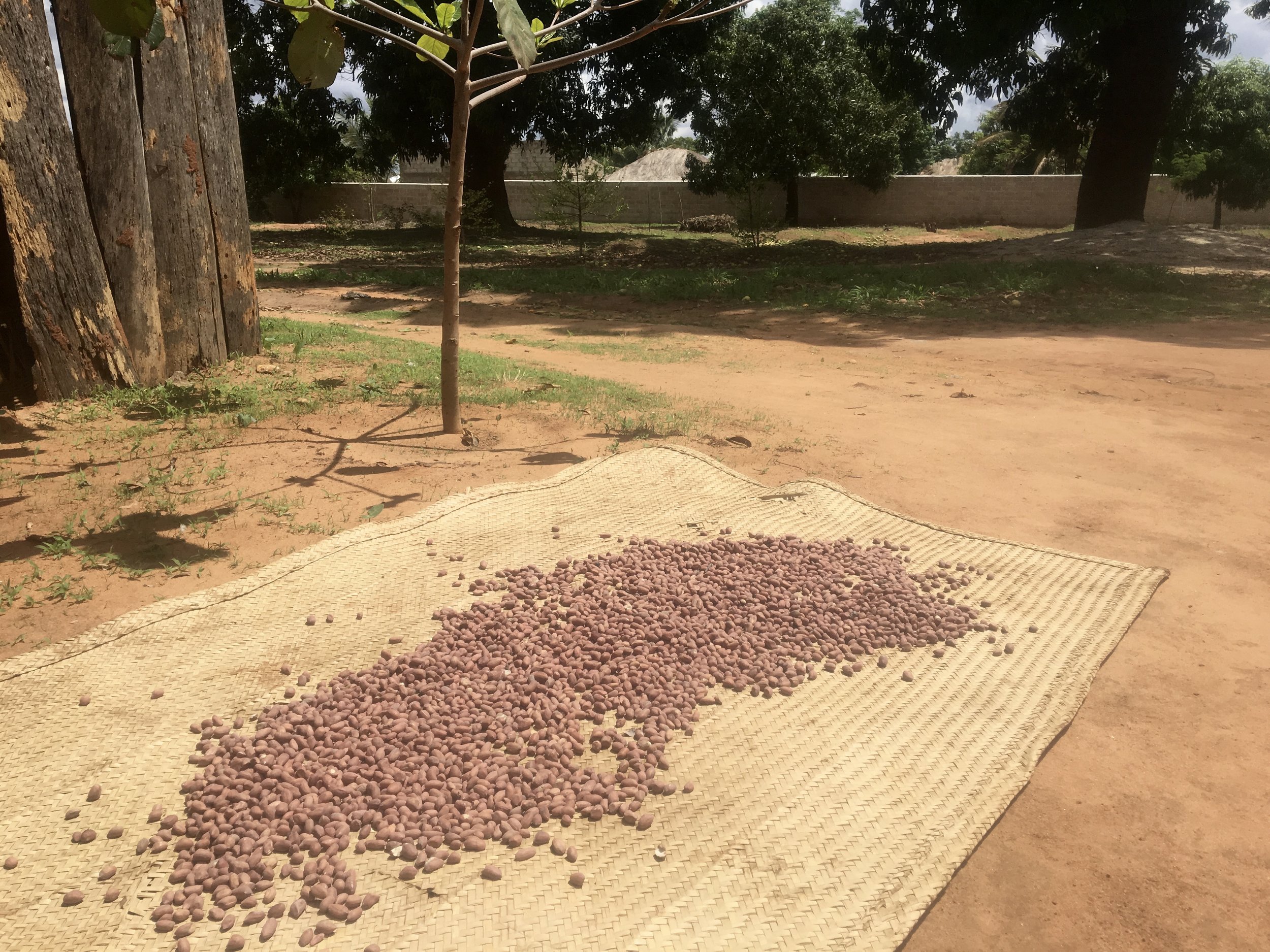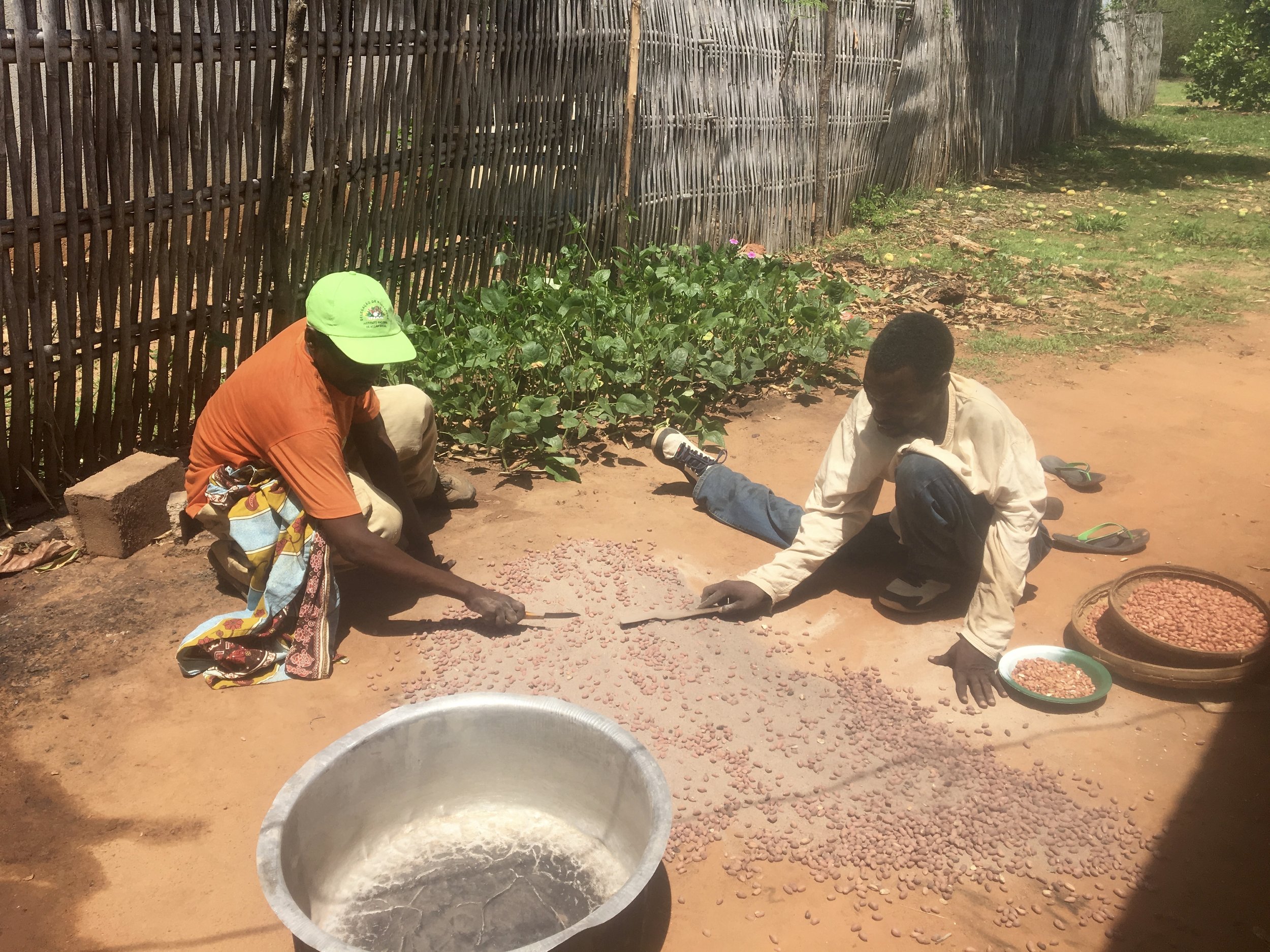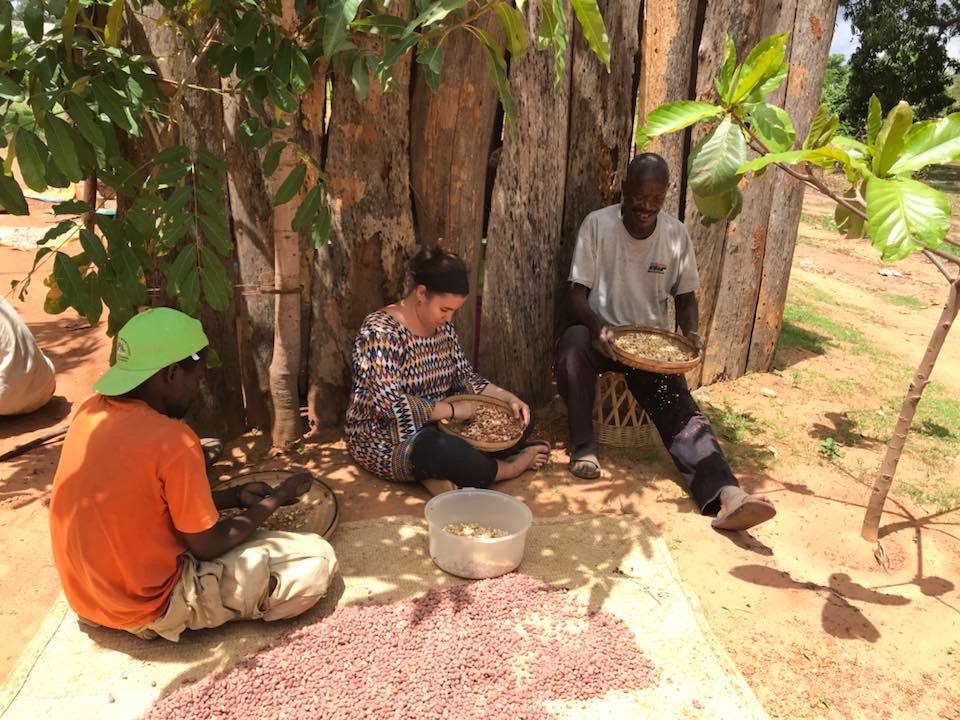In a Nutshell: A Year Heart-Deep in Peanut Butter
Two years ago it would have been difficult to predict the impact peanuts would have on my life. I had no idea of the pleasure, disdain, joy, sorrow, profit, debt, nourishment, and flesh wounds they would bring.
Peanuts are everywhere, always. I planted peanuts, I harvested peanuts, I shelled peanuts, I roasted peanuts, I cooked with peanuts, I sold peanuts, I bought peanuts, I shared peanuts. And having heard that this was a reality before experiencing it fully, the plan to begin a small peanut butter cooperative made perfect sense. In fact, it had already been done successfully in a neighboring district that developed a program to supply the hospital with peanut butter for undernourished children.
So, we went for it. I bought a peanut grinder that was designed for majority world contexts (Compatible Technology International has a lot of great products for business development in the Global South if you’re in the market). We figured out how to put it together and experimented with a variety of recipes. After some taste testing and machine tweaking we were ready to go.
But we didn’t really know who was going to make it.
In October 2017 The Guardian published an article that highlighted the plight of the disabled in Mozambique. According to this article, 80-90% of disabled people in low-income countries are unemployed, compared to approximately 52% in the UK. This is very much the reality in Mozambique where disabled people are stigmatized for various reasons: their assumed lack of contribution (or negative contribution) to the family’s financial stability, the stigma of disabilities being contagious, and the belief that having a disabled child is a curse on your family. The article was saddening and inspiring. It drew me into the very different vision that God has for the disabled.
In Luke 7 John the Baptist is having some doubts about his cousin Jesus. While he’s in prison he asks some his disciples to go to Jesus and find out if he’s the real deal, if he’s the God-ordained savior that the Jews have spent centuries waiting for. This is Jesus’s response, his proof that God has come and is working among them. This is what it looks like for God to be with humanity.
“…the blind receive their sight, the lame walk, lepers are cleansed, and the deaf hear, the dead are raised up, the poor have good news preached to them. And blessed is the one who is not offended by me.” (Luke 7:22-23)
When God is present, there is healing and good news for the disabled, the diseased, the poor, and everyone else deemed offensive to the powerful people of society.
And this reminded me of Dinis.
A friend from Peace Corps introduced me to Dinis after hiring him to wash clothes and cook. Dinis had come to his door with a letter saying that Dinis could not hear or speak, his parents had died, and the aunt with whom he lived wanted to kick him out of the house. It’s a heartbreaking, but common story. My friend, Dinis’s employer, would be leaving soon, meaning that Dinis would be out of a job. And so I asked if Dinis would be interested in learning to make peanut butter and he became my first employee.
I was then on the hunt for someone to work with Dinis. I had long been curious about ADEMO, the organization of disabled people in my community, and the article only heightened my interest. I spent a day walking around and collecting alms with them, trying to get a grasp on what the disabled experience is like in a city like Montepuez. That’s when I met Fernando.
Fernando is the unofficial leader of ADEMO alms-receiving, guiding the path of the 120 or so individuals who methodically go through the city gathering money, bread, flour, and other necessities. Following a snakebite, Fernando lost his leg and now walks a long way into the city with a crutch and a prosthetic. Fernando had strong leadership skills, was very connected in the community, very friendly, and he could communicate well in sign language. I asked him if he wanted to join the peanut butter project. He agreed and brought a friend, João, who was also crippled. A few months later Fernando’s friend Oracio joined the group, and a couple months after that Dinis’s friend Faustino joined the group. We had a full-fledged peanut butter co-op that met on Tuesdays and Thursdays to shell, roast, and grind peanuts.
I often make snide remarks about young, wealthy, white, Evangelicals who go off to the Global South to save the world despite their lack of appropriate skills or any awareness of what they’re doing – but there I was, eating my words as a 23-year-old American girl with no business experience, managing a multicultural, multilingual, and multigenerational peanut butter business in a place where I knew little to nothing about the peanut butter market.
I had plenty of brilliant ideas though. Since all peanut butter sold here comes from South Africa, it’s very expensive, despite its low production cost. Jars are also extremely hard to locate, so I thought it would be a great idea to put the peanut butter in little plastic sacks and sell it like all other local snack food is sold. It would have been an A+ in all my classes on sustainable community development.
Well, it didn’t work. People didn’t like peanut butter being in a different container. Peanut butter belongs in a jar, they said. And so we started locating used jars and sanitizing them, the typical practice for anything locally made and being sold in a jar. But the used jars have old expiration dates listed on them, so people were concerned about that and sales were slow at first. Then more issues with the jars. Then issues with the labels. Then issues with the vendors.
We kept experimenting. We kept selling to different people. Our product improved. Our customer base expanded. And slowly but surely, we had a profitable business going.
But there were so many other questions I was unprepared to answer. How do I approach managing men who could be my grandpa? How do I discern which of their requests should come out of their salary and which should be gifts? How much do people get paid? How much should I allow people to be in debt? How do I deal with an employee who is stealing from the project (peanuts, y’all – I literally had to fire someone for peanuts)? What do I do about the fact that I’m leaving in November? What can even be accomplished in a year’s time?
We answered these questions within our little community. Every Tuesday and Thursday we came together over peanuts. We talked about how to shell peanuts correctly and the significance of practicing Ramadan. We figured out the logistics of finding jars and getting to funerals. I learned to roast peanuts in pots full of sand and some Mozambican sign language.
It is true that many things could have been improved upon and that these fine friends of mine deserved someone a little more capable, a little more experienced, a little more networked, a little more devoted. But together we navigated our awkwardness and inadequacies over rice and beans.
It’s strange now to be ending my role in the project. Perhaps it will continue on, or perhaps not. One employee, Oracio, decided to make an investment and purchase the machine with hopes of continuing to make and sell peanut butter with Fernando and Dinis. And while it’s not the certainly sustainable, hugely prosperous, transformative dream of a project that may be ideal; I trust that it did something good here. I trust that it built community, that it showed honor to an often dishonored people, that it empowered people with unique and desirable skills, that it was all locally sourced, and that it was a glimpse into the good world that God is creating for the disabled of Montepuez and for me.
I went to visit Fernando one afternoon. He lives way out of town, especially considering that he walks with a pretty serious limp. I was sitting outside of his house and he said, “Look at this!” He walked inside, flipped a switch, and a little 40-watt light bulb came on outside. “Thank you for giving me a job. My family has electricity now.”
That moment has stuck with me, more than any other in my peanut butter journey.
A little tangible byproduct of all of the haphazard experimenting.
That’s the point, I think.
Little lights.
We’re working together to create little lights.
Not big bright and shining stars, though those are nice.
Just little lights shining into immensely dark spaces.
And the darkness cannot overcome it.
